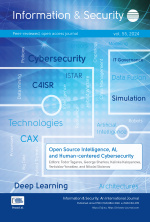Behind Blue Lights: Exploring Police Officers’ Resilience after the Terrorist Attack at Brussels Airport on March 22, 2016
Source:
Connections: The Quarterly Journal,Keywords:
coping, Organization, police, resilience, resourcesAbstract:
This case study on the terrorist attack at Brussels Airport on March 22, 2016 explores the experiences of police officers concerning (a) their coping strategies after the terrorist attack and (b) the (in)formal workplace social support that affects their resilience. A qualitative, exploratory research method was used to answer the research questions, consisting of a content analysis of the police organization, a participant observation and 31 in-depth interviews with police officers who were on active duty during the terrorist attack. The results of this research show that the interviewed police officers primarily adopt engagement coping strategies after the terrorist attack, of which the most cited one is talking to others, followed by engaging in positive action, behavioral distraction, self-evaluation, positive self-talk and emotional numbing. Second, this study revealed that (in)formal workplace social support plays a significant role to foster police officers’ resilience after a terrorist attack. Informally, getting acknowledged for the efforts made during the terrorist attack and for psychological loss afterwards is crucial in this process. Besides, emotional support from both colleagues and supervisors is identified as essential. However, the ruling ‘macho’ culture within the police organization is perceived as hampering to talk freely about emotions. Formally, respondents place emphasis on a proper debriefing and a well-organized, easily accessible psychological aftercare. This scientific contribution provides insight into the best practices the police organization can apply to promote the resilience and performance of its employees.
